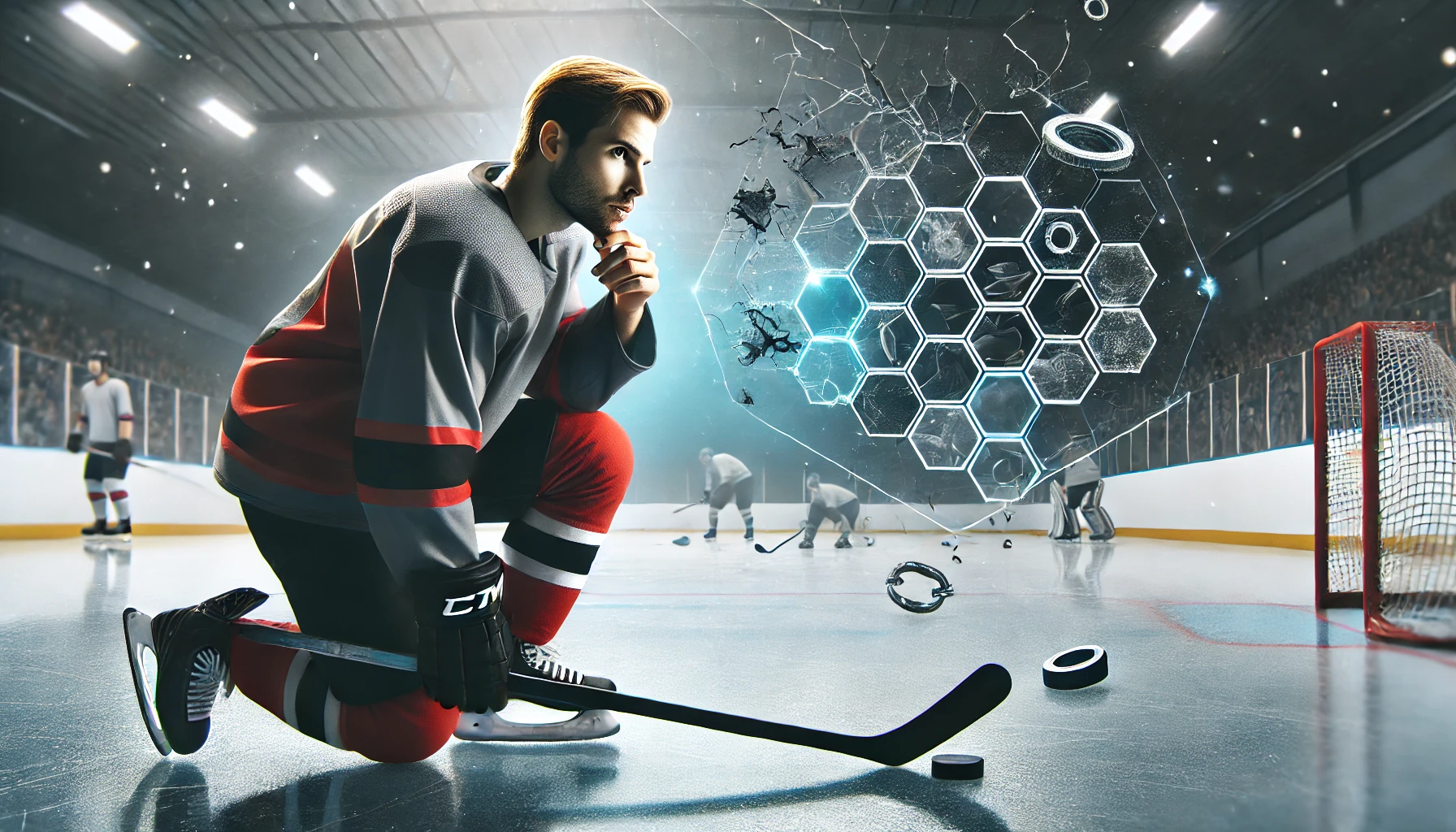|
3 Common Mistakes Blocking Your Mental Game in Hockey—and How to Fix Them
Building mental resilience on the ice is like developing your puck-handling skills—it takes consistent practice, attention to detail, and a sharp awareness of the mistakes that can hold you back. You already have the potential to adapt, thrive, and lead under pressure, but today we’re spotlighting three common mistakes hockey players make that block their mental game—and how to fix them.

1. Mistake: Avoiding Tough Situations Instead of Facing Them
In hockey, avoiding challenges—like going up against a tougher opponent or stepping into high-pressure moments—can hold you back from building mental toughness. Whether it’s second-guessing a play, hesitating to speak up in the locker room, or avoiding those crucial "battle drills," shying away from discomfort weakens your ability to bounce back when the game gets tough.
How to Fix It:
Reframe tough situations as opportunities to grow. Instead of fearing mistakes, see them as part of the process to becoming a stronger player. Next time you're faced with a challenge, tell yourself: This is where I build my game. The more you lean into uncomfortable moments, the more resilient you’ll be when the pressure’s on.
2. Mistake: Neglecting Recovery in the Name of Hustle
Hockey players are known for their grit, but overworking without proper recovery leads to burnout, injuries, and poor performance. Many players believe that pushing harder means better results, but skipping out on rest and mental recovery can leave you drained, both on and off the ice.
How to Fix It:
Recovery isn’t just part of training—it is training. Build habits that support your physical and mental recovery, like stretching, getting enough sleep, and taking mental breaks. Even a short 10-minute visualization exercise before games can improve focus and reduce stress. By prioritizing recovery, you’ll boost your stamina, mental clarity, and overall performance.
3. Mistake: Thinking You Have to Handle It Alone
In hockey, it’s easy to believe that mental resilience means toughing it out solo. But even the best players lean on their teammates, coaches, and support systems. A strong network not only builds confidence but also keeps you grounded when the stakes are high.
How to Fix It:
Recognize that asking for help is a strength, not a weakness. Build relationships with teammates, coaches, and mentors who can offer guidance and perspective. The best players understand that hockey is a team sport, both on and off the ice. Relying on your community doesn’t diminish your resilience—it strengthens it.
Why This Matters for Your Hockey Career
Mistakes are part of the game, but recognizing and fixing them sets elite players apart. When you embrace challenges, prioritize recovery, and lean on your support system, you’ll develop the resilience to thrive under pressure and perform at your peak.
If these tips resonated with you, share this email with a teammate who could benefit from building their mental resilience. Together, we can all elevate our game.
Skate like the wind, Izzy
Resources for You
Why Work with Isabelle?
Isabelle Hampton-Stone, bestselling author and expert in mental performance, transforms the mindset of NHL players, Olympic athletes, business leaders, and world-class surgeons. Her tailored approach empowers you with clarity, resilience, and peak performance.
Ready to Elevate Your Game?
Contact Isabelle to begin your journey to unshakable confidence and elite performance.
|